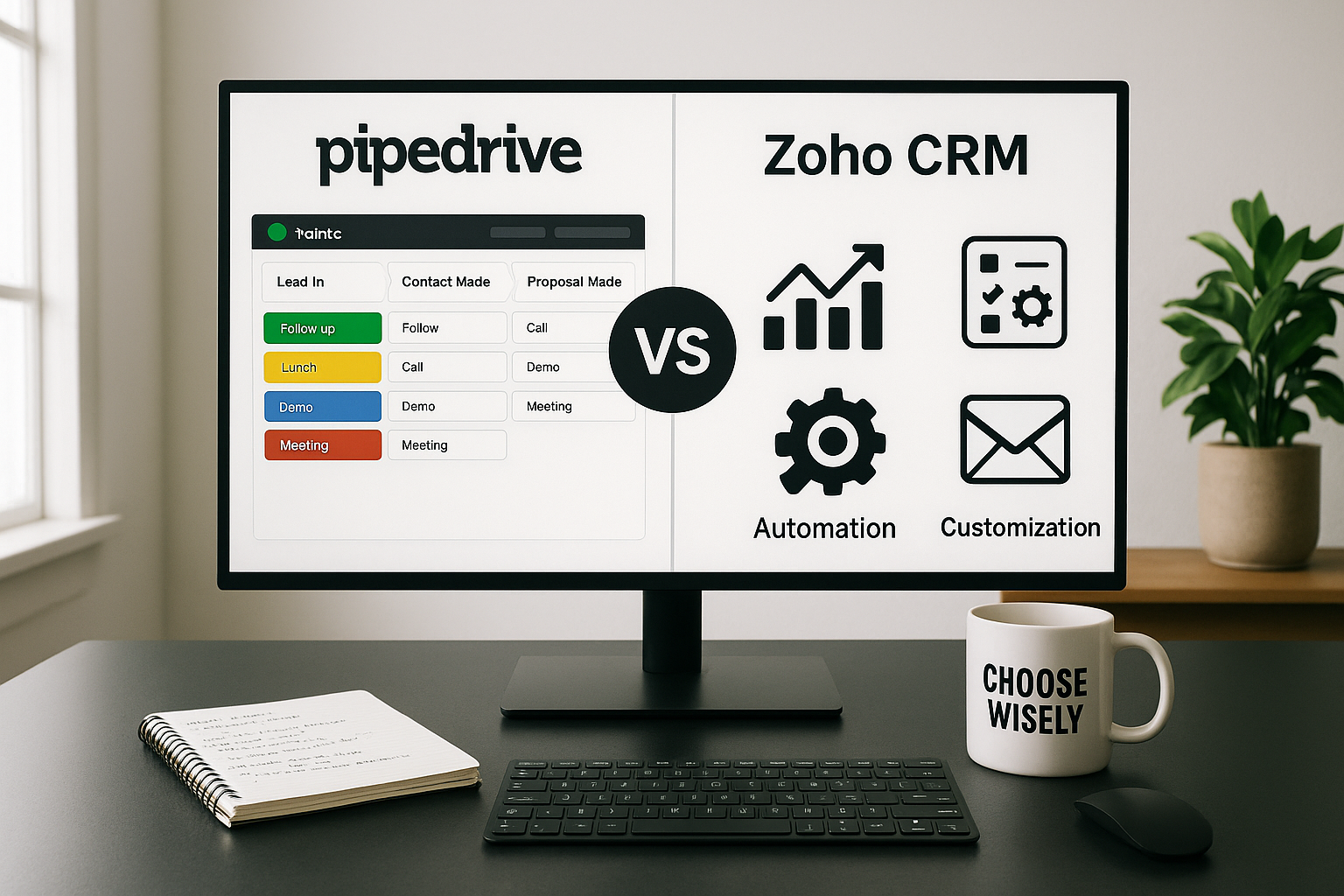What does accounting software for small businesses do?
Accounting software reduces the amount of time spent on data entry by enabling users to sync their business bank accounts and credit cards with the software. Transactions will go into the accounting software once they are synchronized, where they can be categorized into different accounts.
In addition to our best picks, there are such CRM systems for accounting tasks as:
Although the majority of accounting software is simple to use, accurate financial report creation requires a general understanding of accounting principles. Because of this, many companies employ bookkeepers or accountants to monitor or review their books. Businesses can easily access their books at the same time as their bookkeeper or accountant with cloud-based online accounting software.
The most basic features of accounting software for small businesses include:
- Invoicing.
- Synchronizing credit cards and banks.
- Accounts payable.
- Accounts receivable.
- Online customer payment collection.
- Basic financial statements preparation, like profit and loss statements, balance sheets, and statements of cash flow.
- Access for accountants or tax experts.
7 the best apps for accounting for small businesses
1. QuickBooks
Best small business accounting app overall
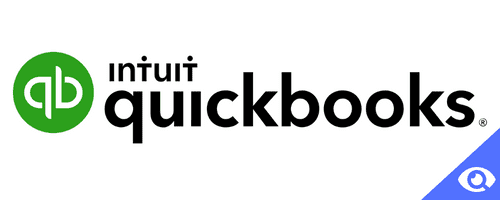
QuickBooks is one of the most popular accounting programs. It is designed by the US financial software company Intuit, which also creates TurboTax. QuickBooks Online is not only used by the majority of small business accounting specialists, but there are also endless online training resources and forums where you can get support when you need it. One main dashboard provides easy access to all accounting features, enabling more fluid and effective bookkeeping.
Pros:
- You can handle credit cards, eChecks, PayPal, mobile payments, and points of sale for payables. Some options in Quickbooks allow you to connect with a live bookkeeper.
- Since most bookkeepers and accountants are familiar with QuickBooks Online, sharing information with them is simple.
- Users can photograph, upload, and pair receipts with expenses.
- GPS-based automatic mileage tracking.
- It has desktop versions for Windows and Mac and mobile applications for iOS and Android.
Cons:
- If you don't have any experience with accounting, using QuickBooks can be difficult.
- Great business analytics and insights require the best plan.
Overview:
QuickBooks Online and the Invoicing & Expenses app are the perfect options for business owners who want comprehensive accounting on any device with a simple interface and useful features. The software subscription has a lot of features, most of which are available on the mobile app.
One of the key features is the ability to manage expenses by taking photos of receipts. Also, you can view reports, add and search customer contact information, generate and track invoices, and reconcile transactions using the app.
The QuickBooks Self-Employed: Mile Tracker and Taxes app is a great replacement if you're an independent contractor. It`s the companion application to the Self-Employed version of QuickBooks Online. After you pay $10 per month for the accounting software subscription, you can use the app for free.
The accounting app's functions, such as expense tracking and receipt image capture, are also present in the self-employed app, plus a GPS-enabled mileage tracker and a tax filing assistant that integrates with TurboTax.
Pricing:
- Simple Start: costs $15 per month for the first three months, then $30, billed monthly.
- Essentials: costs $27.50 per month for the first three months, then $55, billed monthly.
- Plus: costs $42.50 per month for the first three months, then $85, billed monthly.
- Advanced: costs $100 per month for the first three months, then $200, billed monthly.
- Self-employed for freelancers: costs $7.50 per month for the first three months, then $15, billed monthly.
2. Xero
Best bookkeeping app for unlimited users

Xero is Australian software for accounting and bookkeeping. More than 18 countries use Xero. QuickBooks and the cloud-based accounting software Xero are similar in many ways, although Xero is less expensive. It is a great solution for midsize and large businesses that includes a variety of advanced accounting functions.
Pros:
- It`s cloud-based.
- The software allows an unlimited number of users at every level of subscription.
- Gusto's payroll integration.
- Marketplace for third-party apps.
- Straightforward inventory management.
- Mobile accounting app from the Google Play store or the Apple store.
Cons:
- It offers limited reporting.
- Fees charged for ACH payments.
- The program provides poor client service.
- While many small businesses, especially startups, find Xero to be an easy-to-use accounting solution, some may seek a more advanced platform as they grow.
Overview:
Xero is usually known as the most user-friendly accounting software, as the tool makes it easy to track and pay bills. You can manage expenses, claims, and even reimbursements. This solution also enables you to speed up bank transactions by integrating Xero with your bank. Also, it has features for bank reconciliation.
Xero collaborates with Stripe and other payment processing software when it comes to payments. Moreover, you get multi-currency payment processing. This straightforward accounting program for small businesses allows your customers to pay with PayPal.
Xero is a project management application for accountants. You get quotes, invoices, time tracking, sales tax, and profitability tracking. Payroll for employees can be completed quickly and easily with this small business accounting software. You can automate bookkeeping workflows using more advanced tools.
Pricing:
- Early: costs $3.25 per month for the first three months, then $13, billed monthly.
- Growing: costs $9.25 per month for the first three months, then $37, billed monthly.
- Established: costs $17.50 per month for the first three months, then $70, billed monthly.
3. Wave
Best free app for small business accounting
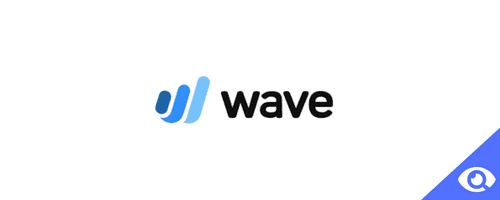
Wave's free invoicing app for small businesses helps you track your revenue. The platform includes a wide range of tools for double-entry bookkeeping as well as other financial services like payment processing.
The only expenses are transaction fees for credit card payments of 2.9% plus 30 cents per transaction and ACH transaction fees of 1% (or $1 minimum). There are also monthly fees if you use the company's optional payroll services.
Pros:
- Accounting, invoicing, and receipt scanning are all free.
- There are no transaction or billing limits.
- Run several businesses with a single account.
- The number of users is unlimited.
- With Wave's mobile apps, you can handle most of the features, like sending receipts.
Cons:
- Integrations only via Zapier.
- Higher fees for ACH payments and credit cards.
- Full-service payroll is limited to 14 states.
- Due to the pricing structure, it can be challenging to keep a low monthly cost once you get over their free plan.
Overview:
The Wave platform provides you with a free basic accounting suite. It enables you to track your income and manage all of your expenses. You can create fully customizable invoices and keep track of their payments. You can also send receipts and reminders for payment. Revenue and invoices are recorded and stored as backups in your Wave account.
With Wave, you can accept both online bank transfers and credit card payments. You can use it to calculate taxes and payroll. Additionally, you can manage to pay outside contractors.
Overall, this is a solid free platform for simple accounting requirements that isn't too overloaded with complex features. Wave can also offer professional accounting coaching from qualified experts.
Pricing:
The accounting software is always free, but you have to pay for add-on features like payroll.
[Related Article: Bookkeeping For Startups]
4. Freshbooks
Best app for bookkeeping for freelancers
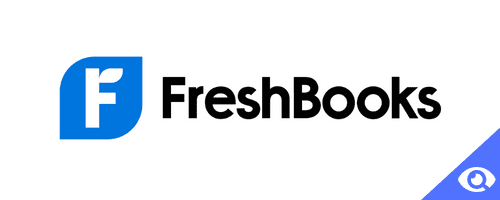
Freshbooks is a robust and user-friendly invoicing and accounting program. Its features are designed for small business owners. The Freshbooks Invoice+Accounting app will be beneficial for freelancers and small businesses that provide services that require regular invoicing. You can use the app for free in tandem with Freshbooks accounting software.
Pros:
- You can review your conversation history and chat with clients through the app.
- Users get notifications when customers view or pay invoices.
- Automatic mileage tracking and import of receipts.
- Mobile UI that is simple to use.
Cons:
- It is costly to add more users because of the pricing structure.
- You'll require an app integration for things like inventory tracking.
- If you want advanced automation, you'll need a more premium plan.
Overview:
Freshbooks is one of the top bookkeeping programs for small businesses. It offers mobile apps for Android devices and iPhones. You can use Freshbooks to get all the double-entry accounting basics, including invoicing and billing. Also, you can manage estimates, budgeting, and time tracking.
Accounting functions include accounts receivable and payable, balance sheets, and general ledger tools. With Freshbooks, you can automate simple accounting tasks like automatic credit card charges and payment reminders. Moreover, Freshbooks helps with project management. It simplifies task distribution and communication.
There are many ways to customize this accounting program. It has solid financial reporting capabilities. Additionally, Amazon eCommerce sellers favor Freshbooks.
Pricing:
- Lite: costs $17 per month, billed monthly.
- Plus: costs $30 per month, billed monthly.
- Premium: costs $55 per month, billed monthly.
- Select: contact the vendor.
5. Sage Accounting
Best small business accounting app with the chat feature
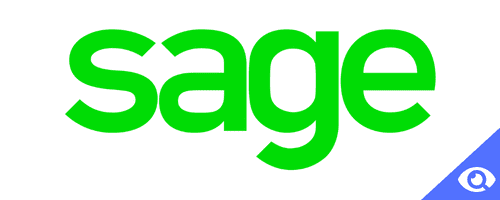
The Sage Group is a multinational provider of business software from the UK. Although Sage doesn't have the same brand recognition as some other apps on this list, it's still a solid choice, and its features are consistent across the software and mobile app.
Pros:
- It provides double-entry accounting.
- Affordable pricing structure.
- Sage Accounting supports an unlimited number of users (second-tier plan).
- The data-driven insights and artificial intelligence are extremely accurate and can significantly improve your accounting processes.
- Automation and workflows are easy to create with Sage and immediately help speed up operations when implemented.
- It offers comprehensive reporting and inventory tracking.
- The software has mobile versions for iOS and Android.
Cons:
- Lack of a free plan.
- There are less complicated cloud-based accounting tools than Sage.
- Outdated user interface.
- There is no time-tracking feature.
Overview:
Sage Accounting includes everything starting from double-entry accounting. Create invoices and monitor when they get paid. You can also accept payments with Stripe.
Sage's excellent customer service is one of its significant benefits. You can get in touch with customer service by phone, chat, or email. Additionally, the company offers a knowledge base with articles, product documentation, and news on recent software updates.
Sage Accounting tracks your financial information. This is used to predict future cash flows. You can connect this to your bank to streamline transactions. Profit and loss statements are included in real-time reporting. You can also quickly view balance sheets. The tool also includes inventory management.
One of the most useful features Sage offers on its mobile app is a chat function that allows you to manage your transactions by sending texts. You can check your current balance, log recent payments, and track receipts using that chat feature. The mobile app also allows you to create and send invoices, as well as reconcile bank transactions. Once invoices are sent, you can track the payment status from the app and follow up on overdue payments.
Pricing:
- Sage Accounting Start: costs $10 per month.
- Sage Accounting: costs $25 per month.
6. Zoho Books
Best app for accounting with inventory management
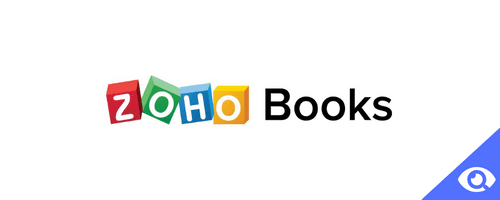
Zoho is a well-known brand in business software solutions. CRMs and customer support platforms are only a few of its many products. Although it's not nearly as well-known as the QuickBooks software, this Zoho Books companion app is a great choice for small business owners looking for a feature-rich accounting app.
Pros:
- Comprehensive feature set.
- Easy to use user interface.
- Automatic mileage conversion from Apple Maps and a GPS.
- Users can create contacts using photos of business cards.
- Inventory tracking feature that can do reorders and replenishes.
Cons:
- You'll need Zoho Expense, a different program, to scan receipts.
- Plan limitations based on the user.
- Lack of payroll services.
- Limited integration options compared to rivals.
Overview:
The software and app have a straightforward user interface that makes it simple to find the functions you need. Many of the software's features are also available in the app, which lets you set up phone notifications to inform you of client activity like viewing or paying invoices.
You can get an overview of your account on the dashboard. There, you can record and categorize expenses and bills, create and send estimates and invoices, send purchase orders, track billable time, and download and print reports.
Zoho Books can help you with receivables. Generate custom invoices, remind customers to pay, and provide online payment options. You can connect your bank account. Some transactions may be automated using workflow rules. There are contact features that work similarly to a light CRM. Also, there are options for project management and time tracking. Last but not least, you can set regular customizable reports.
Although Zoho Books is mostly an online tool, it provides a Windows desktop version available via the Microsoft store. Moreover, it offers mobile apps for iPhone and Android devices.
Pricing:
- Free: free for businesses with less than $50,000 in annual revenue.
- Standard: costs $15 per organization per month, billed annually.
- Professional: costs $40 per organization per month, billed annually.
- Premium: costs $60 per organization per month, billed annually.
- Elite: costs $120 per organization per month, billed annually.
- Ultimate: costs $240 per organization per month, billed annually.
7. Book Keeper
Best accounting app for small businesses with a user-friendly interface
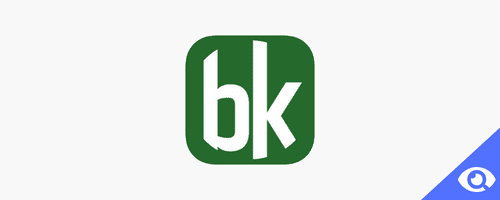
Although it isn't as popular or robust as QuickBooks, Book Keeper's accounting program has more than 500,000 users and is one of the best in its industry. The Book Keeper program for accounting, GST, invoicing, and inventory has an easy-to-use interface and simple design.
Pros:
- The app has a user-friendly interface.
- All features, including invoicing, reporting, and billing, are easy to use.
- The software generates reports very quickly.
- Many features are available for neatly maintaining records.
- Friendly customer services team.
Cons:
- A pop-up feature could be improved.
Overview:
Many users who left positive reviews noted trying other accounting programs and felt overwhelmed by the features and cluttered UI. Book Keeper Accounting + Invoice is a good option if you're looking for a straightforward accounting and invoicing tool with a ton of features.
Inventory management is one of the app's most useful capabilities. It keeps an eye on stock, supports multiple warehouses, creates barcodes, and lets you use the camera on your phone to scan them. The app uses Dropbox to sync your data across all your work devices.
The lack of English-language video tutorials and a U.S. phone number for customer service are disadvantages of this program. If you have questions or have problems with the app, you have to get in touch with the company by email, live chat, or iMessage.
Pricing:
- Single User, Yearly: costs $79.
- 2 Users, Yearly: costs $109.
- 3 Users, Yearly: costs $139.
- Single User, Lifetime: costs $240.
- 2 Users, Lifetime: costs $315.
- 3 Users, Lifetime: costs $390.
- 5 Users, Monthly: costs $19.
To sum up
It's never easy to determine which accounting program is best for your small business. There will always be competition for the top spot among famous names like Xero, Quickbooks, and Freshbooks. But perhaps you've found something more specialized in this article that will be great accounting software for your company's needs, whether it be a self-employed business, a startup, or an SMB that is growing.
The type of company, your plans, and your objectives will determine the best accounting software for small businesses. We really hope that we have given you a wide range of options to help you decide.
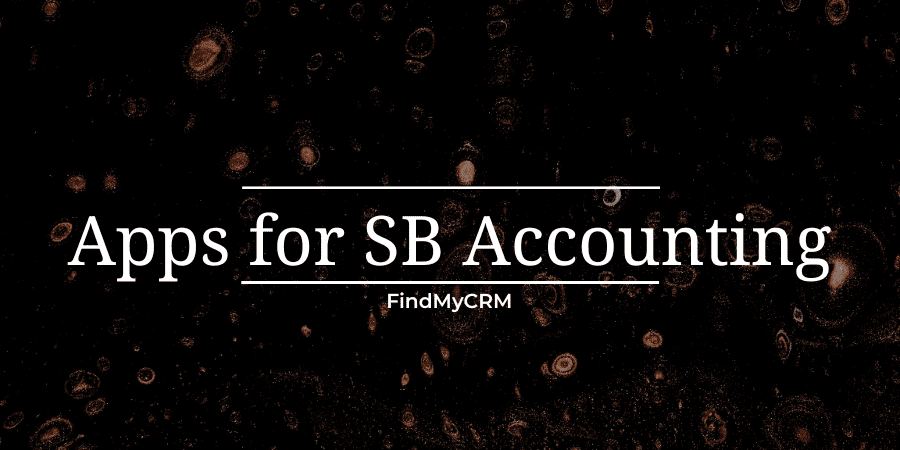
.png?width=140&height=140&name=Noah%20(1000%20x%201000%20px).png)
(2).jpg)

